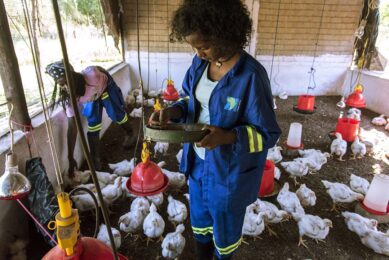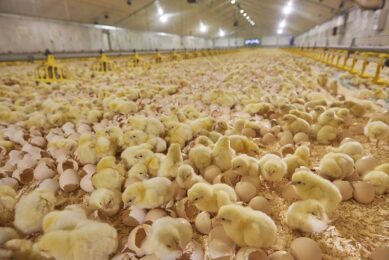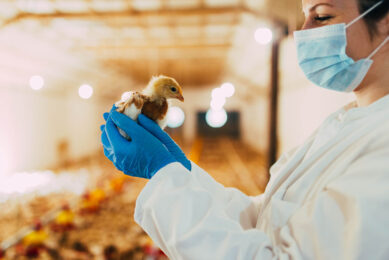British Poultry Council to cut antibiotic usage
British Poultry Council members have agreed to reduce the amount of antibiotics used in poultry production in a bid to help tackle resistant strains of disease.
“New scientific evidence on the threat of antimicrobial resistance is being heeded by the poultry industry,” said BPC chairman John Reed referring to recent recommendations made by the European Food Safety Authority.
BPC members have committed to stop using all cephalosporins in the poultry meat production chain from 1 January, 2012, as well prophylactic use of all quinolones for day-old chicks. Both tend to be used in parent flocks – cephalosporins are the only antibiotics which can be given alongside the Marek’s vaccine, while quinolones are prescribed for chicks when parent flocks face a disease challenge which can’t be treated by other antibiotics.
“Cephalosporins have not been used at broiler level in the UK for five or six years,” said BPC veterinary adviser Daniel Parker. “But the implication will be that parent flocks may have to deal with slightly higher mortality. Ultimately, it’s a question of ensuring that antibiotics are used responsibly – the aim is to get more targeted use without compromising health and welfare.”
The BPC has also agreed to review the use of all antimicrobials during production, and to work with government to survey the prevalence of antibiotic resistant ESBL/Amp-C bacteria strains in UK poultry. “We want a balanced approach across humans and livestock,” said Peter Bradnock, chief executive at the BPC. “We are not saying to stop using all antibiotics; we are withdrawing them where we can and where other approaches can be taken.”
Source: FWi
Join 31,000+ subscribers
Subscribe to our newsletter to stay updated about all the need-to-know content in the poultry sector, three times a week. Beheer
Beheer








 WP Admin
WP Admin  Bewerk bericht
Bewerk bericht